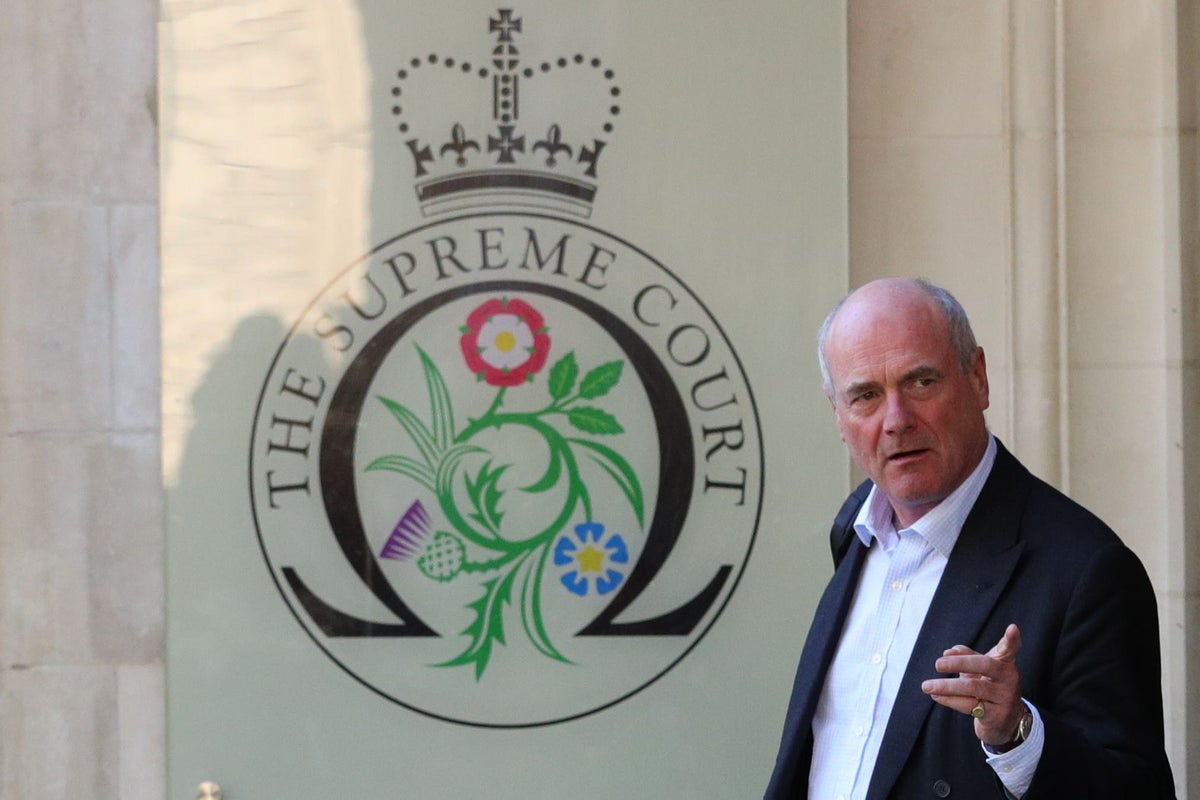
The question of whether the Scottish Parliament has competence to legislate for another independence referendum should not be “farmed out” to the Supreme Court, judges have been told.
The UK Government’s representative argued the problem in the case is that the Scottish Government does “not like” the answer it received from its law officer, the Lord Advocate, on the competence of its referendum Bill.
Sir James Eadie continued to make his arguments before the UK’s highest court as a two-day hearing resumed on Wednesday, saying the Scottish Government’s proposed Bill is at too early a stage for the court to offer a ruling on.
Lord Advocate Dorothy Bain KC has asked judges to resolve the issue of whether Holyrood has the legal power to bring forward the Scottish Independence Referendum Bill.
On Tuesday, she said she would not be able to “clear” the introduction of such a Bill herself, arguing her role is not to be “ultimate arbiter” on the issue.
Sir James continued arguments on behalf of the Advocate General for Scotland, saying the Lord Advocate’s request risked “dragging the court into the political process”.
He told the court that a person in charge of a Bill at Holyrood must make a “positive” statement that it is within the competence of the Scottish Parliament.
The barrister said this was part of the “pre-legislative safeguards” that exist in law, and with the UK Parliament including such a provision so someone in charge of a Bill can “pin their colours to the public mast on competence”.
“It is for the person in charge of the Bill to form that view,” he said, adding it is not “simply to be farmed out to the Supreme Court”.
Sir James said this would be inviting justices “to in effect provide advice to the person in charge of the Bill and or the law officer”.
He said the logic of the Lord Advocate’s position was “uncontrolled and surprising”.
The Scottish Government do not like the answer that she has given— Sir James Eadie
Discussing the competence of the proposed Bill, he said: “It isn’t as though the Lord Advocate, in this case, cannot answer the question in 31.1 (of the Scotland Act).
“The difficulty is that she can answer it and has done so.
“The problem for her is that the Scottish Government do not like the answer that she has given on competence.”
Earlier, he said of the Lord Advocate’s argument: “Unless you can find a clear distinction and cut-off point… it does risk, as it were, dragging the court into the political process.
“Which the structures of the Act are assiduous to avoid, because all of the democratic processes have already happened.”
On Tuesday, Supreme Court president Lord Reed said it may take “some months” for the court to reach a decision on the case.
The two-day hearing before a panel of five Supreme Court justices continues.







